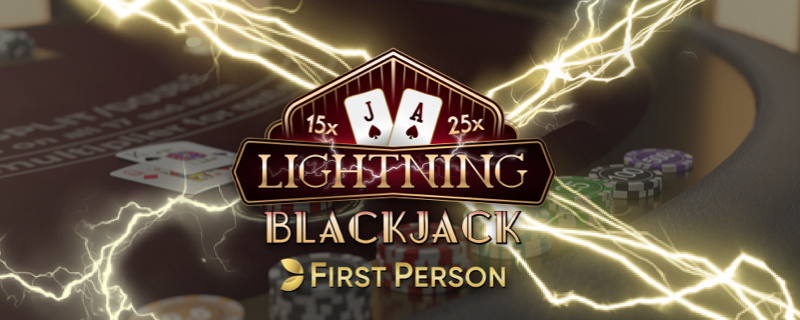ONE WINNER WILL SEE YOU THROUGH: Daqman backs three horses today, with his stakes so arranged that he makes a profit if just one of them wins. A Plumpton plan worth following, with all three races described by him as ‘Daq Value.’
TOMORROW: Daqman takes out his slide-rule and measures the real chances at Cheltenham of the so-called stars who have emerged in the last week.
WEDNESDAY: He dissects four Betdaq-sponsored races at Kempton and has one up his sleeve for the jumps at Hereford.
I put up Willie Mullins for Fairyhouse yesterday; then proceeded to knock him down again. Many punters will be familiar with this occasional affliction of ‘beating yourself’. It usually happens to me when the racing is unfamiliar and I can’t ‘expect’ the results.
In this case, I blame ‘working backwards.’ When a specialist trainer, or a particularly strong horse, stands out on a card, you tend to work round him.
In fact, you should start with a study of the form as the main ingredient and only then add the accompanying information and dress your analysis with the seasoning of experience.
Keeping to a routine, and that one in particular, gives you the advantage of ‘insight’ and implicit understanding of a race because, when on a known road, the subconscious remembers things you have forgotten on the surface.
If you drive a car regularly from A to B, your ‘auto pilot’ takes over; you can’t even remember driving to B; it ‘just happens,’ even to the extent that sometimes you ‘wake up’ at the end of the drive and wonder how you got there.
I used to worry about it, until I met a psychologist who worked in that field. He told me it was much better for me to relax and rely on my ‘auto pilot’ than to try to observe everything as I went along; I would ‘instinctively’ respond to danger, if I let my automatic mind take over.
In police-driver training, which I undertook as a journalist some years ago, you have to ’talk’ yourself round the streets, ceaselessly commenting on every situation (‘approaching T-junction; pedestrian to my right; stationary vehicle too close to junction, blah-blah’). It’s very hard much like hard work! The way NOT to drive.
But the idea of it is that it gets you into an observation routine, honing and sharpening the auto-pilot so that, when the police driver is speeding to tackle a real situation, he has ‘instinctive’ understanding, ‘expectation’ of what could lie ahead and what to do about it.
In racing, my favourite professional punter, Murray Dwyer, who works on the card purely as a mathematician, and uses algorithms to produce his ‘pricing up’ (the computer even places the bets for him) has said more than once that he is envious of the ‘instinctive’ approach.
It’s no secret that I am at my best with quality racing, a Saturday man and a man for the big meetings (check it out in the Archives). It’s not easy to be ‘instinctive’ at plumptious Plumpton or workaday Wolverhampton. Nor is it easy to maintain that regularized study of the cards at such meetings.
The reason, as I’ve said a million times (new readers start here) is that poor-quality horses don’t keep their form; don’t often improve; don’t run the same race twice.
Or as another famous professional, Paul Major, used to say (hope new readers are still with me): ‘Don’t bet below C level!’ This is now called class 3 and, down there among the deadwood, not a lot is stirring..
Unless Barney Curley is having a punt or unless Sir Mark Prescott has cut loose with one of his sequence horses, knowing that he can build a decent bank by beating all that dross over and over again.
There are two class-3 races at Plumpton today, though one of them is dangerous because it’s a beginners’ chase. Anyone who saw the Drinmore yesterday can tell you three things right away, though he’s not sure which of them apply to that race.
Novices can suddenly improve out of all recognition; a good jockey can take a race of novice horses by the scruff of the neck and impose his will on it; some young chasers learning the trade take a dislike to it and ‘go backwards.’
As far as we can tell from the form for this Plumpton novice chase (1.10), Ballylifen doesn’t like winning, or he lacks ‘finish’, or both; he’s been placed six times out of eight. What we don’t know is how he will react to this first run over fences.
Escort’men is the only one in the race to have tried them but didn’t like them an awful lot last season and has had a hurdles run back to give him fitness and confidence. You wouldn’t think he was by the same sire as Sir Des Champs!
Hawkes Point and Kuilsriver both raced in Graded events over hurdles but found their level in class 3, whereas Pateese has class-2 form. Off The Ground and Opening Batsmen failed to go on beyond the novice stage though, as an Oscar, Opening Batsman is likely to take to fences.
But my vote goes to Hawkes Point: a full brother to Alfie Sherrin, from the family of Beau Ranger, he wins when fresh. Two things put me off having a decent bet: firstly it’s a novice chase, of course; secondly, trainer Paul Nicholls – the Willie Mullins of England – has a modest record at Plumpton.
The mares’ handicap hurdle (1.40) is also class 3. It features Madame Jasmine, the Plumpton course specialist, proverbially as game as a pebble (why are pebbles ‘game’?). The snag with her is that she’s been hiked in the handicap again and has won only in class 4 and 5.
Mavalenta is dropped in class – and switched back from fences – after running in a higher grade at Aintree and is returning to the level of her Fontwell success off a 6lb lower mark.
However, Bunglasha Lady stands out on form, a class-2 winner, down 3lb on that and with her winning rider that day, A P McCoy, back in the saddle.
This time the snag is that she had to miss the whole of last season; otherwise she is known to win when fresh and will have been ‘got up’ (specially prepared) for this race.
I like the trade-paper description of Kaycee’s ‘strike rate’ of 0-23 as ‘frustrating’ (3.10 Plumpton). Frustrating’s not the word, and 0-23 isn’t a strike rate, since there’s been no strike!
It’s an awful race of ne’er-do-wells so I’m tempted to think that Dushy Valley can continue his winning run and land a hat-trick over CD. He’s a rare bird at this level to be putting wins together, and a rare decent price at offers of 4.0 this morning.
DAQMAN’S BETS
DAQ VALUE BET: 11pts win HAWKES POINT (1.10 Plumpton)
DAQ VALUE BET: 7.6pts win BUNGLASHA LADY (1.40 Plumpton)
DAQ VALUE BET: 6.6pts win (nap) DUSHY VALLEY (3.10 Plumpton)
* Daqman’s bets are staked to win 20 points, so you know the offer he took (20 divided by the stake). Daq Value today indicates that the list of offers for the race added up to a total probability of 108% or less in each case this morning.
Did you know that as well as checking the realtime prices on BETDAQ below – you can also log into your account and place your bets directly into BETDAQ from BETDAQ TIPS.







